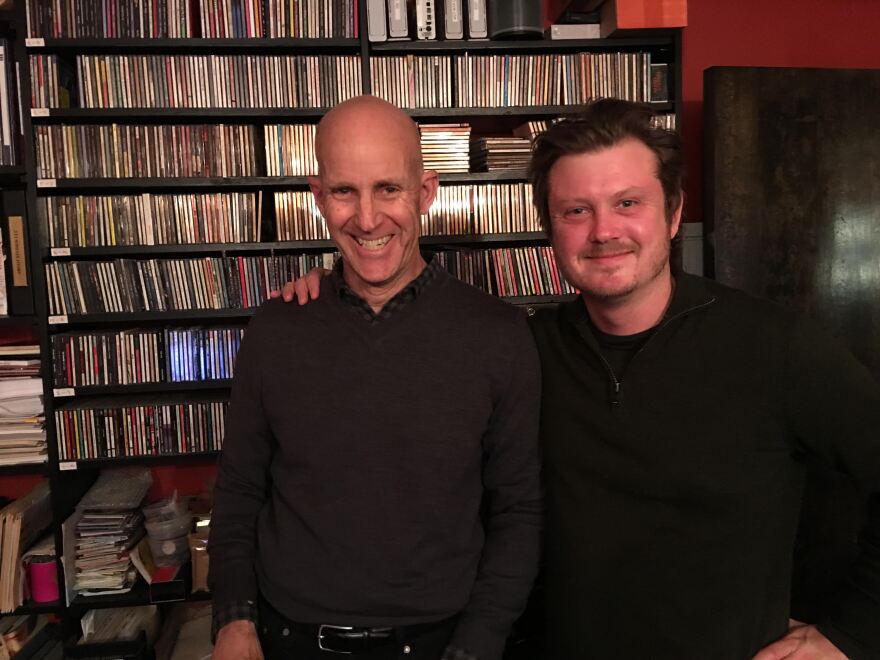The 2016 election has ignited Beau Willimon to action. The creator of "House of Cards" has formed the Action Group Network to embark on a new form of advocacy; singer-songwriter Angelica Garcia opens up about how moving from L.A. to a small colonial-era Virginia town gave rise to her debut album, “Medicine For Birds."
'House of Cards' creator Beau Willimon on his real life political activism
With the Electoral College voters casting their ballots today, the result of the 2016 presidential election is official. But for some activists, things are just getting started. Among those spurred to action by the election outcome is Beau Willimon.
He’s a playwright, screenwriter and producer who created the Netflix show, "House of Cards," in which Kevin Spacey plays a ruthless politician out for his own gain, above all else. Host John Horn sat down with Willimon to talk about his participation in real life political activism after the historical election. Here are edited excerpts from their conversation.
Interview Highlights:
The day after the election
I immediately wanted to start think about how we can react to this election in a positive and forward thinking way. I don't think I would have reacted this way [if Hillary Clinton had won]. That was the candidate I supported. It was her vision of America that I personally want to see us move towards. I don't think I would've committed myself to as much activism had she won. Maybe if there's a silver lining as to what happened a little over a month ago, it just opened the eyes for a lot of people to see how much they needed to get involved. People are motivated to get involved, it's about tapping into that energy, facilitating and organizing on the ground in a way that progressives have not in the past decades.
His impetus for political involvement
It hasn't been about narrative for me, nor is it about my past experiences [in politics and television]. While I did some politics and I did some work in Hollywood, my impetus on getting involved now comes from being a concerned citizen. Working on campaigns and working in Hollywood, it's about a get-up-and-go mentality. When I did my first television show, it was sort of trial by fire, and I'm dealing with this the same way.
Building a nationwide network of activists
Within days of the election, I started holding action sessions. They weren't about analysis, or grief, or processing. They were about concrete action items that we can get to work on right away. What was great was you had [600] people in a room, committed to working together and to getting politically active. I thought maybe I could mimic this in other cities and started contacting my friends in towns around the country. I started to get thousands of responses from all 50 states, over 150 cities. got overwhelming good responses. Ultimately, it's a mechanism by which people can organize in small groups with shared accountability.
Obligations for artists after the election
I [have previously] said that artists could choose to engage in the political sphere, but they didn't have an obligation or responsibility to. I do think things have changed. There are times in our nation's history, our world history, where the concerns we are all facing are so severe or important that it can't help but make its way into the psyche and motivation of the artist. In one way or another, the events of the past year will inform [my work]. The degree to which you are openly or didactically trying to advance a political agenda, or reflect a hard truth that you need everyone to take a look at, those metrics are for each artist to determine. I know my friends in the artistic community are asking themselves, What is my responsibility? How is this going to change my art? And what do I need to prepare myself for?
Click on the blue media player above to hear the full interview.
Urban L.A. meets the rural South in Angelica Garcia's 'Medicine For Birds'
Country music writers often draw inspiration from picking up and moving from one place to another.
It’s no coincidence then that Angelica Garcia’s musical career started after she moved from Los Angeles to a small Colonial-era town in Virginia with fewer than 600 people.
My move across the country happened when my dad, who was originally in the record industry, decided he wanted to change his career path and become an Episcopalian priest.
Garcia's debut album, “Medicine For Birds,” was made with veteran songwriter and producer Charlie Peacock. It reflects the awe she felt as a high school student experiencing the gothic atmosphere of a small town in the South.
When I first moved to the South, I think the first thing that hit me immediately was probably all of this crazy grand architecture. Driving down Highway 13 — it's a pretty lonely little four-lane highway. And we pulled into our new house in Accomac and there's a part of the street that's lined with magnolia trees, there are kudzu vines growing everywhere, cemeteries and iron fences.




